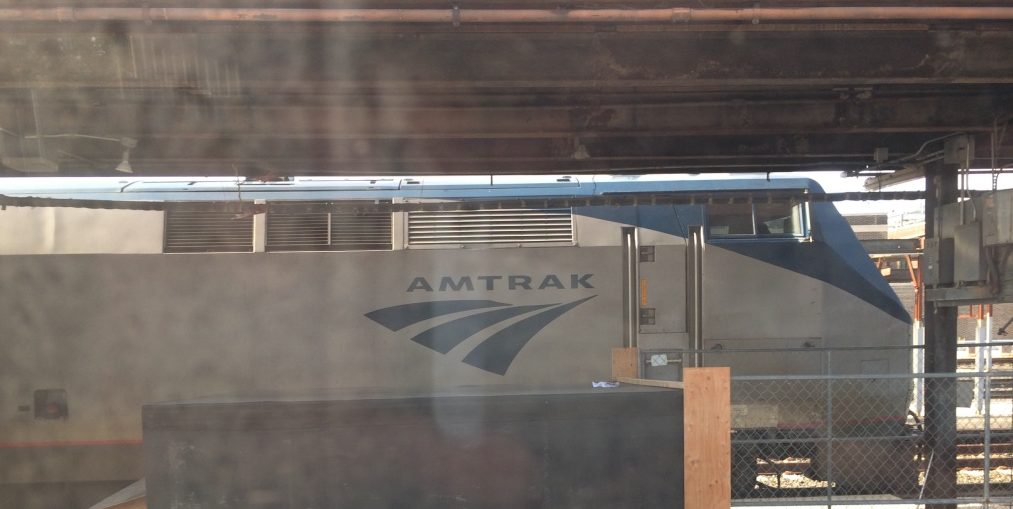
Riding the Train
When I boarded the northbound train in Brattleboro on Friday, gas was approaching $5/gallon, and my ticket cost less than making the 300-mile round-trip in my Prius. When I returned home on Sunday, gas had hit the five-dollar mark. If I calculated the cost of purchasing, registering, insuring and maintaining the car, the train was an absolute bargain. It was also a pleasure.
A Pleasant Journey
After boarding, I settled into a seat the size of a Barcalounger, which would have been comfortable even if a passenger occupied the seat beside me. Comfortable as it was, my seat lacked a seatbelt as well attendants exhorting me to buckle up. There was no “fasten seatbelt” sign, no one reminding me it’s a federal crime to tamper with the smoke detectors in the lavatory, no instructions on how to negotiate an oxygen mask or life vest, no expectation that the train would crash and we’d all die. It was all very pleasant.
Gaining Time
I didn’t just save money by taking the train; I also gained time. For two and a half hours, I lost myself in The Lincoln Highway, a wonderful novel by Amor Towles. While I was traveling north by train in reality, I was also transported east imaginatively, traveling by boxcar with Emmett and Billy Watson. It’s 1954, and the Watson brothers are trying to drive to California, but Duchess and Woolly, Emmett’s friends on the lam, have complicated the boys’ journey. It’s quite a yarn. Every once in a while, I had to take a break from the story and stare out the window at the lush Vermont landscape passing by.
Not Perfect
The train ride wasn’t perfect. The Vermonter, as this route is called, travels from Washington, D.C. to St. Albans. Nearing the end of its run, the restroom I used needed some attention. The floor was so sticky, I thought I’d step out of my shoes. But there was a functioning toilet and still plenty of TP. Low expectations make for pleasant surprises.
By now . . .
If only we’d heeded the writing on the wall and invested in public transportation after the oil embargo in 1973, we’d have great train service between cities and adequate bus service in rural areas by now. Maybe now, with the soaring price of gasoline, we’ll have the will to invest in such alternatives to driving.


Enjoyed my phone doctor’s appointment with Dr. Shafer yesterday and I mentioned how much I enjoyed your post. You are a welcome plus to a very tough time. Haven’t been on a train for years but sounds like something that should be done. Thank you for providing this piece of pleasure.
As a white privileged person, riding around in my e-car plug-in and also using the train occasionally, it seems like the world is pretty good. But what I recognize is the extreme burden lower-income people are carrying in our capitalistic economy and how it continues to protect the “upper-class” and the wealthy. Adequate funding for wide-spread public transportation will not occur under our current economic structure. We need an assertive, grass-roots effort, insisting upon fundamental economic change which means taking-on the big corporations. It’s hard to see how this can happen in my life-time because of the economic power structure but let’s keep fighting the good fight.
I’ve twice had the great pleasure of riding the Bboro Vermonter southbound, to meet family in NYC for events. I loved the gentle, swaying ride and the freedom to nap, read or just gaze out the window at the changing scenery. It was quite relaxing and effortless.
I am a bus driver’s daughter. Spent more than a few joyous days, as a kid skipping school, riding the big bus around urban NJ with my Pop. Public transportation is not only vital in the city areas, but we need more routes and options up north here, where the closest town for supplies is 25 mile round trip.